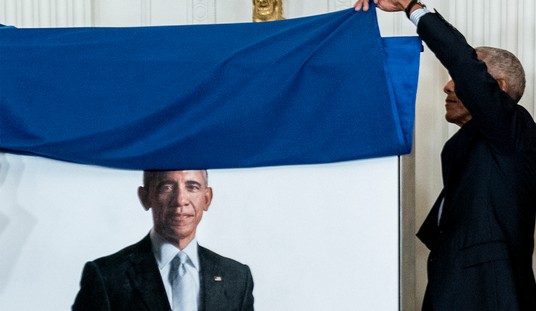(Note: Since I wrote this, the sixth pillar has become more important. For the first three pillars, click here.)
——————————
4. Terrorist blackmail and other pressure should determine U.S. policy.
Since American policy needs to retreat rather than raise the flag, more than 20 embassies were closed due to alleged al-Qaida threats. The reason this kind of fear, lack of credibility, and abandonment of deterrence is unwise is not even comprehended any more in Western policymaking circles.
The concern that the Muslim Brotherhood will turn to a war of terrorism if it doesn’t get power returned to it in Egypt is also supposed to overwhelm other considerations of U.S. interests. The fear that the Palestinians will push for statehood in the UN and international court causes panic that the United States cannot resist this supposed tidal wave. Other demands, especially when linked to positions on gender or other special interests, take precedence over demands of U.S. allies, even with Saudi Arabia now denouncing European sanctions against Hezbollah as inadequate.
5. Syria must be an Islamist state.
This has been a major priority during the Syrian civil war. The incumbent Syrian regime should not only be overthrown, but that its replacement should be Islamist, and preferably Muslim Brotherhood. A shocking but major hint regarding this was provided by a high-ranking CIA official, who claimed Syria was the top threat to U.S. security.
Bringing Islamist rule to Syria with a larger component of armed radicals has become central to U.S. policy. There are two central themes behind this policy: ensure that al-Qaida — considered the ultimate and perhaps sole threat to U.S. interests — does not come to power instead; and keep most of the power away from the Salafists, thus bringing about “moderate Islamism.”
This is what is meant in official documents, such as this excerpt describing the position agreed on by Obama and Turkish Prime Minister Erdogan:
The president and prime minister discussed the danger of foreign extremists in Syria and agreed on the importance of supporting a unified and inclusive Syrian opposition.
At the same time, U.S. policy has been stymied. The American people and government do not want to intervene directly; the rebels cannot win without direct intervention (and more Western involvement at least); and intervention is also discouraged by the bad (radical Islamist) reputation of the rebels to Western publics.
Despite the fact that at least two chemical weapons incidents have been documented from the regime (the “red line” for Western intervention), the Americans have been frozen. Yet the West does not want Iran to hold on to Syria. What can the West do?
6. Conciliation with Iran.
The Obama administration considers the election of a new president in Iran a tremendous opportunity, but it isn’t. The administration has always wanted to make a deal with Iran, both to avoid confrontation and for domestic popularity. Obama could claim a peaceful resolution as a great diplomatic achievement. This fits their ideological pattern of negotiations and concessions to enemies, especially to “moderate Islamists.”
But how can this collective deal on the nuclear program and on regional stability be achieved? One way is for Iran’s actual intransigence to go ignored, and for American leaders to pretend to believe a deal can be reached until the time when Tehran gets nuclear arms.
Another way is to think a deal can be reached with Iran and Russia on Syria. I am certainly not saying that this will succeed, but I believe it is the sincere administration goal. The idea is for Assad’s departure and some transition, and the idea is ridiculous. The Palestinian Authority will not co-exist today in a compromise with Israel, nor the Egyptian army and Muslim Brotherhood in one government, nor the warring parties in Syria, nor a U.S-Iran arrangement. All of these will fail.
7. Turkey is the main ally in the Middle East, which means guidance is taken from that Islamist regime on Egypt and Syria.
Turkey is considered a model of moderate Turkish Islamist democracy, though in reality it disproves the thesis altogether. Columnist Burak Bekdil notes:
How democratic a posture could a country pose when it ranks 154th on the global press freedom index, kills its own people because they protest, and ruthlessly punishes every possible means of dissent, including just standing in a public square? The Turkey of 2013 is the short-cut proof that a country where the elected have absolute control over the appointed, including the men in uniform, is not necessarily a democracy.
Of course, the idea that Muslim-majority states are building the “democracy project” — another administration agenda item — is also absurd. It isn’t wrong in principle perhaps, but it is not a primary U.S. interest.









Join the conversation as a VIP Member